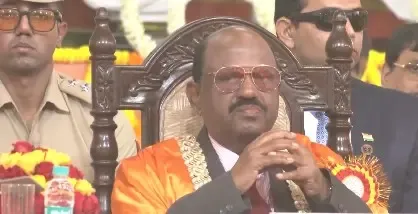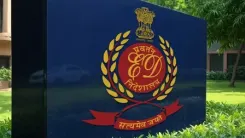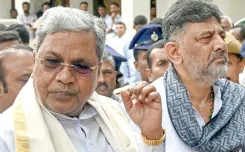Is 'Un-finished: The End of Kejriwal Era?' the Untold Tale of AAP's Downfall?

Synopsis
Key Takeaways
- AAP's journey illustrates the gap between activism and governance.
- Initial public support waned due to unmet promises.
- Controversies plagued AAP's governance.
- Political maturity is crucial for sustaining trust.
- Revival requires learning from past mistakes.
New Delhi, June 7 (NationPress) Esteemed journalist and NDTV Consulting Editor, Sumit Awasthi, presents an insightful exploration in his book, ‘Un-finished – The End of Kejriwal Era?’, chronicling the Aam Aadmi Party’s (AAP) political evolution—from its grassroots origins as a movement to its ascension in Delhi under the guidance of Arvind Kejriwal, and its eventual decline.
The book, launched on May 10, delves into a decade of AAP governance in Delhi, which concluded following its loss in the February 2025 elections.
In a discussion with IANS, Awasthi outlined the book's pivotal theme: the distinction between activism and governance. "Activism and governance are fundamentally distinct—this is the primary focus of the book," he noted.
Awasthi argues that while AAP excelled in rallying public support during its movement phase, it struggled to deliver effective governance.
The narrative illustrates how the party's initial appeal of offering a transparent and accountable political alternative captivated voters, yet over time, it failed to meet those expectations. “Organizing protests is one thing; governing is a whole different ballgame,” he commented.
He elaborated that the book demonstrates how AAP ended up reverting to its origins. “This is the essence of the book—AAP returned to the starting point,” Awasthi stated. He emphasized that although the party was elected with promises of providing a fresh alternative to traditional parties like Congress and BJP, its inexperience and political naivety became apparent over time. "Immaturity heavily impacted the party," he declared.
Despite forming a government in Punjab and gaining traction in states like Goa and Gujarat, Awasthi believes this was due to voters in those areas lacking experience with AAP's governance. “They promised transparent governance and received votes; however, when it was time to execute, AAP faltered,” he pointed out. “Eventually, public trust waned as they realized the party could not fulfill its promises,” he added.
Awasthi highlighted a significant turning point: Arvind Kejriwal’s choice to remain in office despite incarceration. "They frequently claimed moral superiority in public life yet behaved in ways that were starkly contradictory—this did not go unnoticed by the public," he said. "If AAP learns from its failures and prioritizes enhancing its service delivery, there is still hope for revival. However, if it neglects this, it risks fading into obscurity," he cautioned.
Awasthi noted that the book is built on thorough research and includes documented controversies and scandals surrounding the AAP government, such as issues related to Mohalla Clinics, the liquor policy, and the construction of school facilities. “The book is based on extensive data and thorough investigation,” he confirmed.
Remarkably, Awasthi completed the manuscript in just two months, attributing its engaging quality to its captivating narrative style. The writing is so fast-paced and compelling that readers will feel as though they are witnessing the events unfold.
With ‘Un-finished – The End of Kejriwal Era?’, Sumit Awasthi offers a critical assessment of a political endeavor that began with great potential but, as the author contends, could not overcome the hurdles of governance. The book provides readers with an intimate view of one of the most significant political narratives in modern India.










